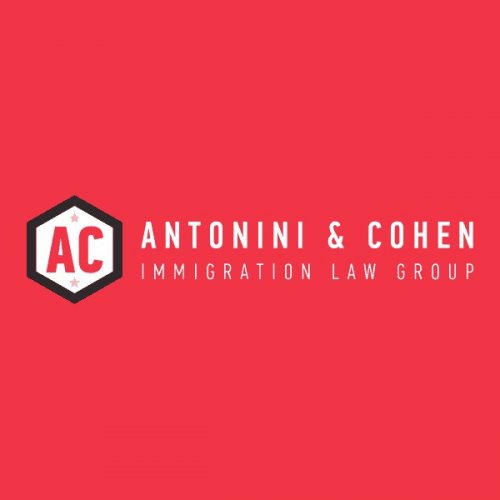Best Citizenship Lawyers in Atlanta
Share your needs with us, get contacted by law firms.
Free. Takes 2 min.
List of the best lawyers in Atlanta, United States
About Citizenship Law in Atlanta, United States
Citizenship in Atlanta, United States refers to the legal status of being a citizen of the United States and is governed by federal laws. Atlanta, as the capital of Georgia, follows the same laws and regulations as the rest of the country regarding citizenship.
Why You May Need a Lawyer
There are various situations where seeking legal help from a lawyer specializing in citizenship may be necessary. Some common scenarios include:
- Applying for naturalization
- Dealing with complex immigration issues
- Addressing citizenship denials or delays
- Seeking help with citizenship tests or interviews
- Navigating citizenship issues related to criminal records
Local Laws Overview
While citizenship laws in Atlanta adhere to federal regulations, it is important to be aware of some key aspects that are relevant to this region:
- Atlanta has various resources, such as immigration offices and legal clinics, that specialize in citizenship matters.
- Local immigration policies and practices may differ slightly, so consulting with an Atlanta-based lawyer is beneficial.
- Understanding Atlanta-specific requirements and procedures can help streamline the citizenship application process.
Frequently Asked Questions
1. Can I apply for citizenship if I have a criminal record?
Generally, a criminal record may affect your eligibility for citizenship. However, it is recommended to consult with a lawyer who can assess your specific situation and advise you accordingly.
2. What is the naturalization process in Atlanta?
The naturalization process in Atlanta involves filing an application, attending an interview, and passing a citizenship test. It is advisable to seek legal assistance to navigate the process successfully.
3. How long does it usually take to be granted citizenship in Atlanta?
The processing time for citizenship applications can vary. On average, it takes around 6 to 12 months. However, certain factors such as workload and the complexity of the case can influence the timeline.
4. Can I become a U.S. citizen if I am married to a U.S. citizen?
Yes, being married to a U.S. citizen can provide you with an opportunity to apply for citizenship. It is advisable to consult with a lawyer to understand the specific requirements and process.
5. Can I lose my citizenship in Atlanta?
In rare cases, citizenship can be revoked if it was obtained fraudulently or through other unlawful means. However, this is a complex issue, and it is crucial to seek legal advice if faced with such circumstances.
Additional Resources
Here are some resources that can be helpful for someone seeking legal advice related to citizenship:
- U.S. Citizenship and Immigration Services (USCIS) - offers official information and resources on citizenship matters: https://www.uscis.gov/
- Atlanta Immigration Offices - provide local assistance and guidance for citizenship issues
- Legal Aid organizations - offer free or low-cost legal services to individuals in need
Next Steps
If you need legal assistance regarding citizenship in Atlanta, it is recommended to take the following steps:
- Research and shortlist lawyers specializing in citizenship law in Atlanta.
- Schedule consultations with potential lawyers to discuss your specific case.
- Prepare all necessary documents and information for your chosen attorney.
- Work closely with your lawyer throughout the process to ensure the best possible outcome.
Lawzana helps you find the best lawyers and law firms in Atlanta through a curated and pre-screened list of qualified legal professionals. Our platform offers rankings and detailed profiles of attorneys and law firms, allowing you to compare based on practice areas, including Citizenship, experience, and client feedback.
Each profile includes a description of the firm's areas of practice, client reviews, team members and partners, year of establishment, spoken languages, office locations, contact information, social media presence, and any published articles or resources. Most firms on our platform speak English and are experienced in both local and international legal matters.
Get a quote from top-rated law firms in Atlanta, United States — quickly, securely, and without unnecessary hassle.
Disclaimer:
The information provided on this page is for general informational purposes only and does not constitute legal advice. While we strive to ensure the accuracy and relevance of the content, legal information may change over time, and interpretations of the law can vary. You should always consult with a qualified legal professional for advice specific to your situation.
We disclaim all liability for actions taken or not taken based on the content of this page. If you believe any information is incorrect or outdated, please contact us, and we will review and update it where appropriate.









